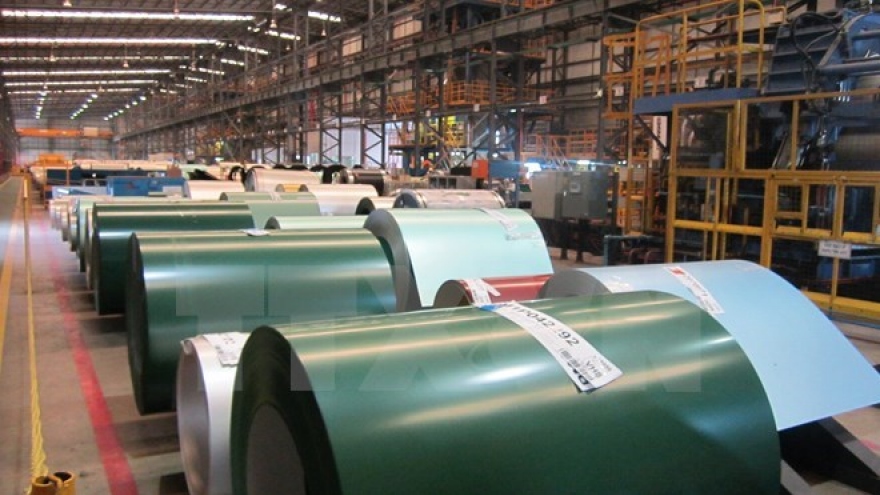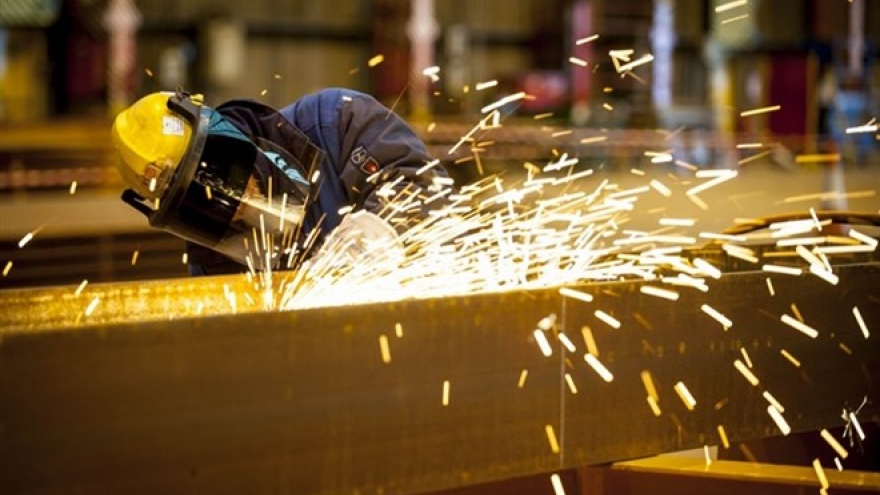Will Vietnam become a scrap steel power?
Vietnamese steel manufacturers are importing more and more scrap steel for domestic production, as this is the easiest and most profitable way to make steel.
 |
According to Bui Van Muu from the Metallurgy and Material Technology Faculty of the Hanoi University of Technology, the steel production from upstream must follow a closed process, from exploitation and iron ore processing to finished product production.
Domestic steel mills make steel from scrap steel with electric furnaces, collected from domestic and imported sources.
This is because iron ore exploitation and processing in Vietnam is still underdeveloped.
The amount of fat coal used to refine coke coal is modest. And more importantly, investors find it cheap to make steel from scrap steel. This doesn’t require high technology, while can bring high profit quickly.
Therefore, Muu commented, it is not a surprise that Vietnam’s steel industry mostly relies on making ingot steel from scrap steel with electric furnaces.
In Vietnam, there are some steel mills equipped with blast furnaces to refine ingot steel from ore such as the Thai Nguyen Iron & Steel Corporation (Tisco) and Formosa.
However, since Tisco is equipped with outdated Chinese production lines and technologies, it still cannot do as well as expected.
Tisco’s products are mostly used to build fourth-level houses, while large construction works dare not use the products because of the quality.
As such, though invested heavily with ambitious plan, Tisco has to follow an easier way – importing scrap steel to make steel like many other private manufacturers.
Even if Tisco wants to make steel from coke refinery, Tisco’s technology cannot satisfy the requirements and the production will cause serious pollution.
A report of GDC shows that in the first three months alone, Vietnam imported more than 1 million tons of scrap steel, worth US$276 million. The import volume is 11,000 tons a day, higher by 1 ton than in 2016.
Muu said as Vietnamese steel manufacturers choose to follow the easy way, the demand for input materials, i.e. scrap steel, is becoming higher.
Most of the scrap steel imported to Vietnam is low quality, difficult to be treated and likely to cause serious pollution. Meanwhile, scrap steel with higher quality cannot arrive in Vietnam.
Experts warned that domestic scrap steel sources can provide input materials to steel mills for about 10 more years.
After that time, the domestic supply will be short, while manufacturers would depend on material suppliers.
By that time, even if Vietnam wants to make steel from coke, it won’t be able to do so because of the limitations of the production lines.


